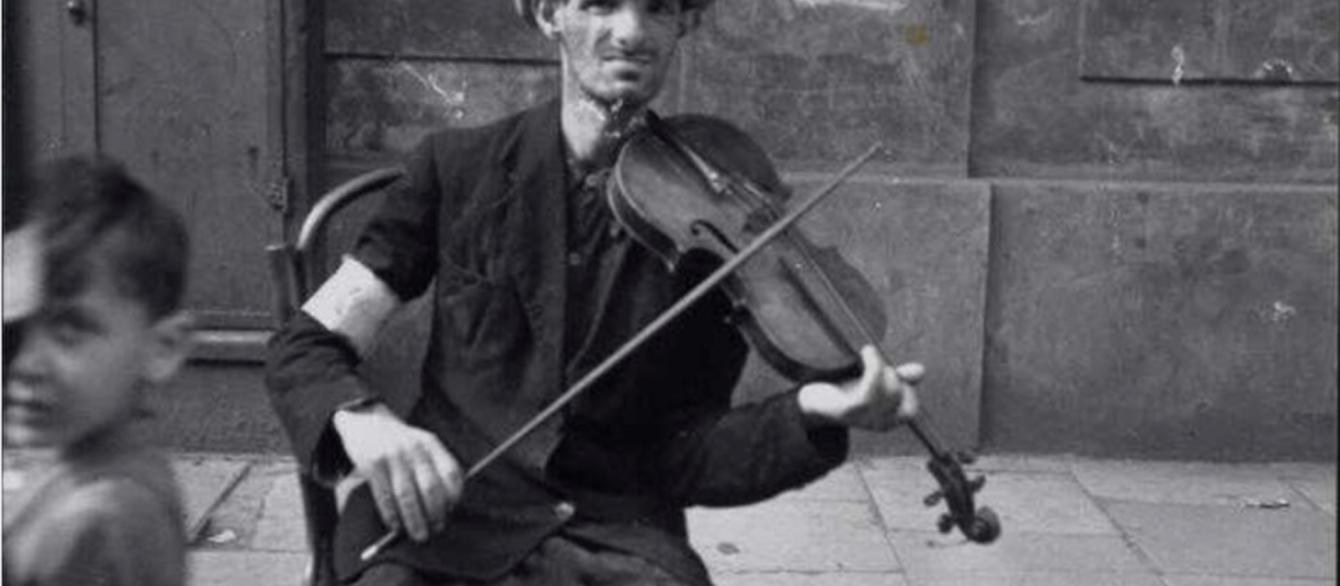The Warsaw Ghetto was the largest and most densely populated ghetto in Nazi-occupied Europe, home at its peak to nearly half a million people. Within its walls, disease, deprivation, intense overcrowding, and Nazi violence threatened not only Jewish lives but Jewish culture. Yet cultural life persisted, particularly through music. This talk examines musical life in the Warsaw Ghetto, using song texts, diaries, and even concert reviews in ghetto newspapers to reconstruct its musical environment. In theaters, cafés, private homes, and on the street, ghetto residents could encounter performances by a symphony orchestra, choirs, chamber music ensembles, jazz bands, and many solo musicians, especially violinists, pianists, and singers—not to mention the beggars who sang for money and food in the ghetto’s streets and courtyards. While ghetto residents could not significantly alter their surroundings, they used music to claim ownership and temporary control over their environment. Music was a means of earning money to survive another day, but many ghetto residents also understood music as a very real moral force in the world, one that could be wielded for good or ill. Accordingly, in Jewish Warsaw’s moment of greatest crisis, they turned to music as a crucial way to express Jewish identity and to imagine potential futures for Warsaw’s and Poland’s Jewish communities.
Sponsorship
Center for Jewish Studies, Harvard University
Accessibility
The Davis Center for Russian and Eurasian Studies at Harvard University encourages persons with disabilities to participate in its programs and activities. If you anticipate needing any type of accommodation or have questions about the physical access provided, please contact us at 617-495-4037 or daviscenter@fas.harvard.edu in advance of your participation or visit. Requests for Sign Language interpreters and/or CART providers should be made at least two weeks in advance if possible. Please note that the Davis Center will make every effort to secure services but that services are subject to availability.




